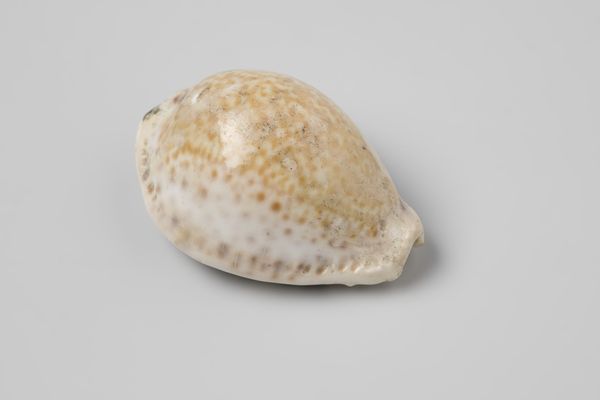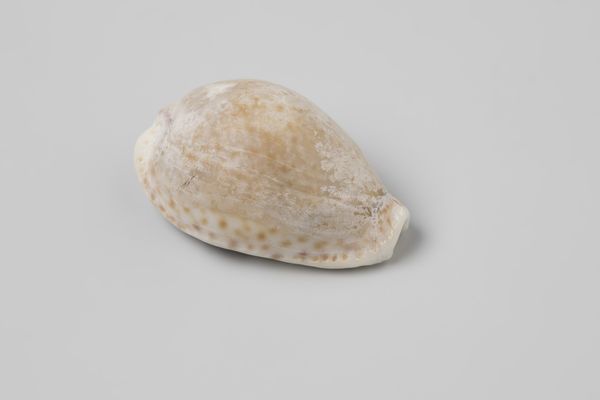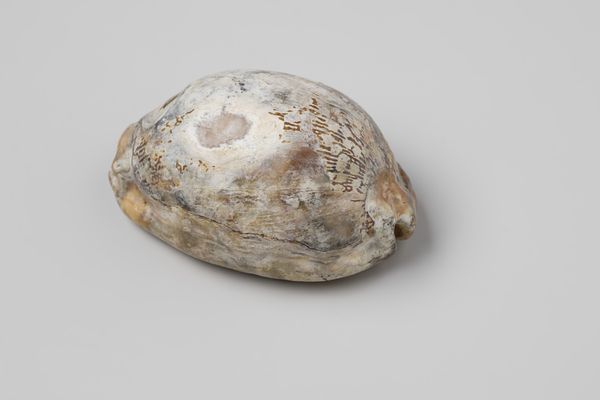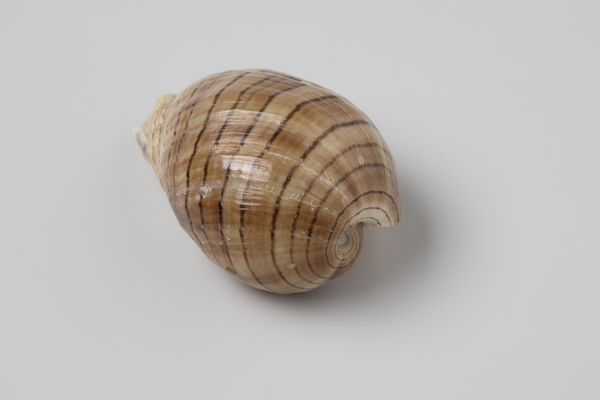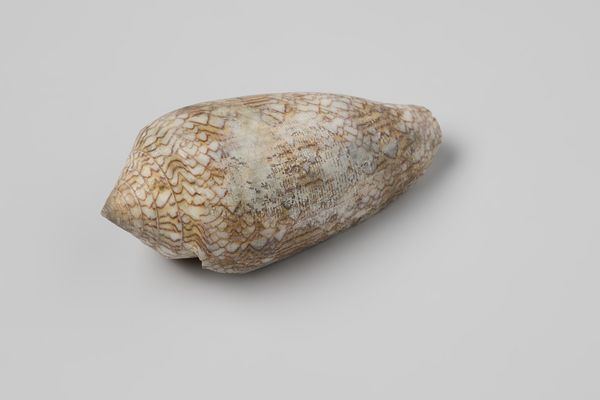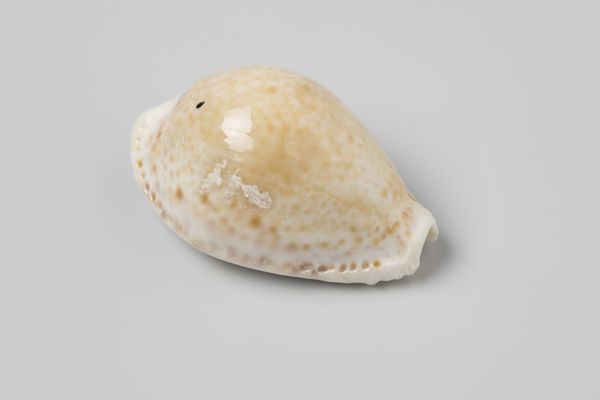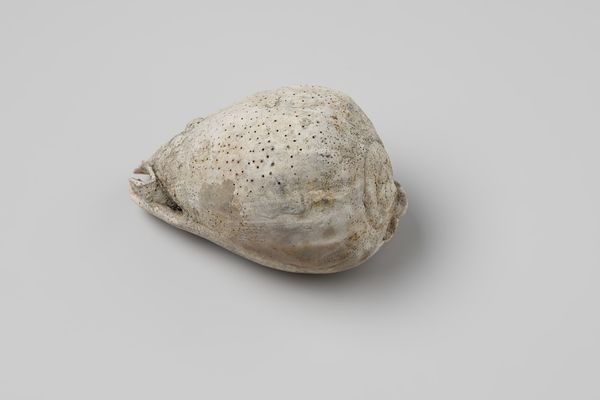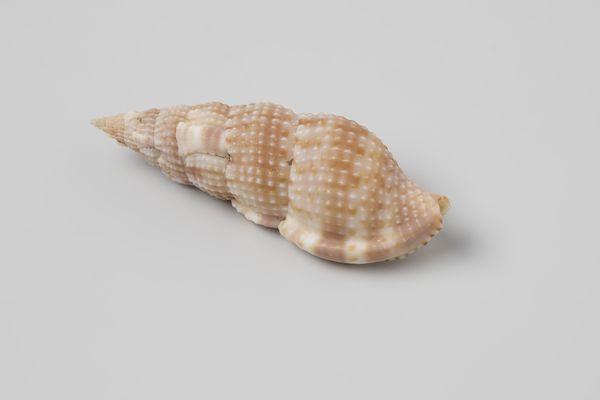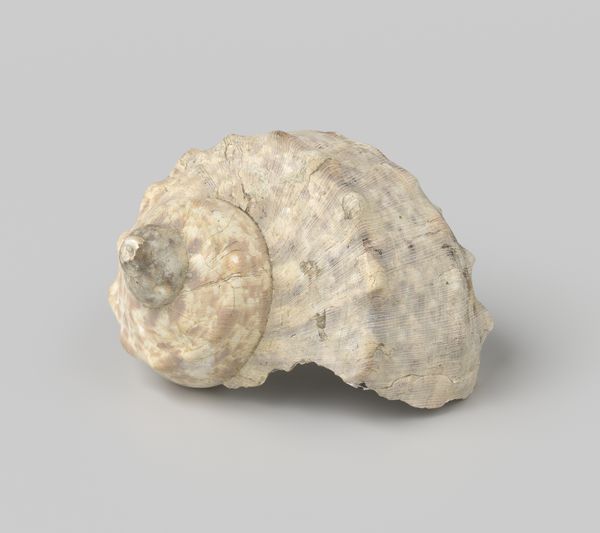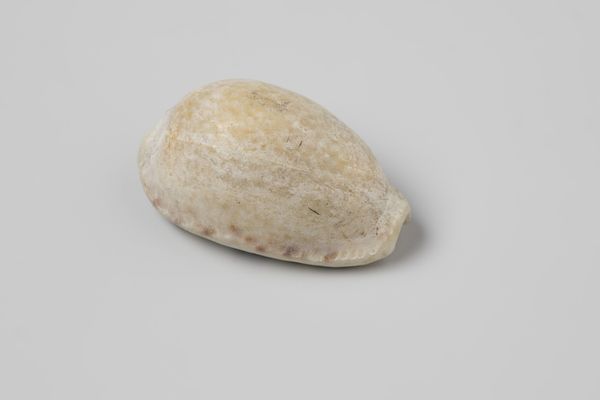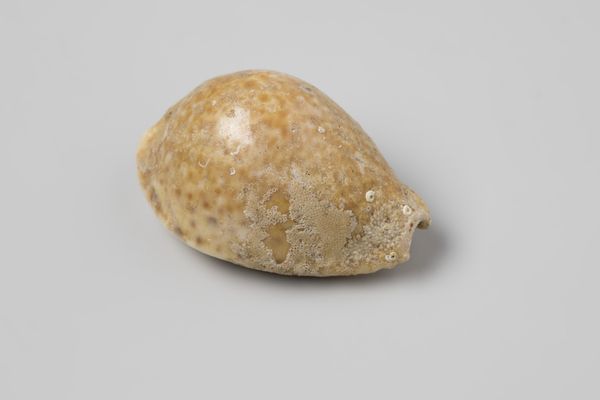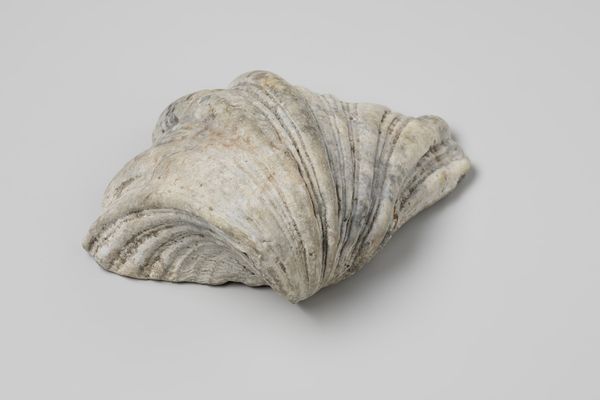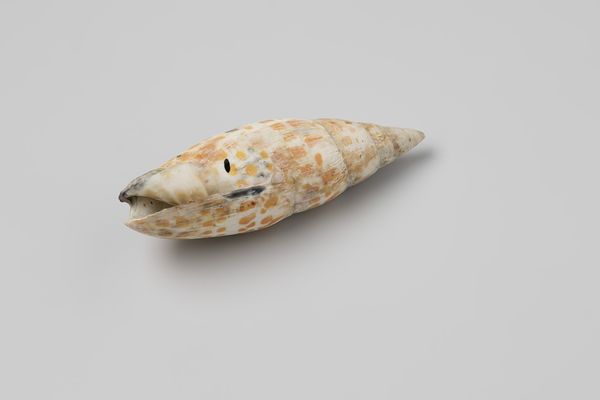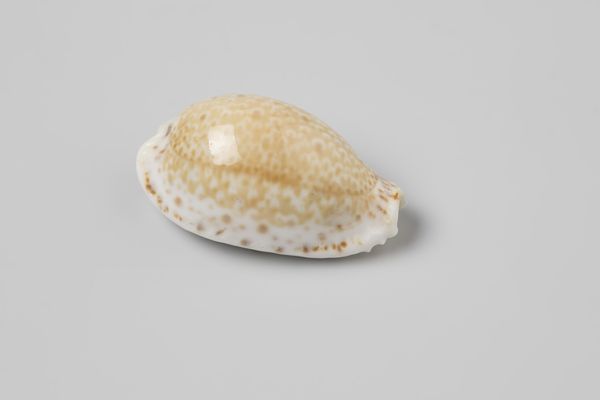
Tonna perdix shell from the wreck of the Dutch East India ship Witte Leeuw before 1613
0:00
0:00
nietvantoepassing
Rijksmuseum
#
dutch-golden-age
#
ancient-mediterranean
#
naturalism
Dimensions: height 5.3 cm, width 6.0 cm, length 9.5 cm
Copyright: Rijks Museum: Open Domain
This is a Tonna perdix shell, recovered from the wreckage of the Dutch East India ship Witte Leeuw. Its presence speaks volumes about the interplay between nature, commerce, and human fate. The shell itself, a spiraling form, echoes the cyclical nature of time and the endless pursuit of trade routes that crisscrossed the globe. Throughout history, the shell has served as a potent symbol: In Botticelli’s “Birth of Venus”, a seashell carries the goddess ashore, representing both divine beauty and fertility. Yet here, recovered from a shipwreck, this shell carries a somber resonance, a memento mori. The sea, a source of life and abundance, can also turn treacherous, engulfing dreams and ambitions. This object evokes powerful emotions as a relic of a specific disaster, and a reminder of our shared mortality. Like a fragile vessel, it underscores the ephemeral nature of human endeavors, the relentless passage of time, and the cyclical return of human creation to the elements.
Comments
No comments
Be the first to comment and join the conversation on the ultimate creative platform.
